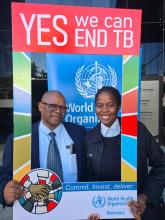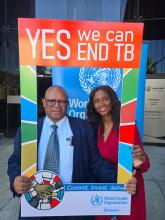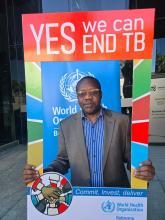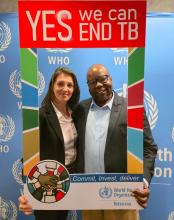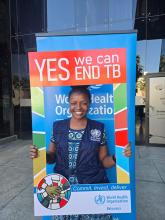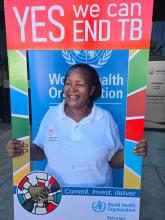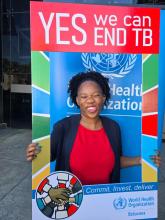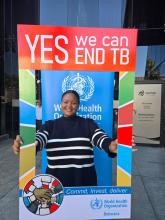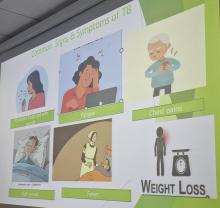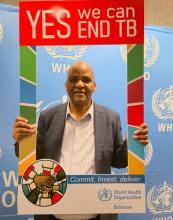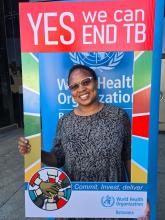Tuberculosis remains a public health threat: Ramontshonyana calls for awareness and action
Although World Tuberculosis (TB) Day is commemorated globally on 24 March, WHO Botswana extended the conversation into May with a staff awareness session aimed at reinforcing key messages around TB prevention and control. During the session, Boingotlo Ramontshonyana delivered a compelling address, urging colleagues to remain vigilant and proactive in addressing one of the country’s enduring public health challenges.
“TB knows no boundaries,” she said. “Whether you're technical staff or support staff, you can contract TB at any point in your life.” Her message was clear: TB can affect anyone, regardless of role or background. The session focused on dispelling common myths, identifying symptoms early, and promoting preventive measures and timely treatment.
The statistics are sobering. In 2023, Botswana recorded 3,251 TB cases. Of those, only 69% completed treatment successfully, while 7% died, despite TB being curable. Even more concerning is the number of patients who go untracked. “Some patients are lost to follow-up, and we don't know where they are,” Ramontshonyana noted. “This means they could be out in the community, unknowingly transmitting TB to others. That’s why support at both individual and household levels is so important.”
Despite these challenges, there is hope. TB is both preventable and treatable. Tools like digital X-rays, home-based care, and improved treatment adherence strategies are already making a difference in early detection and recovery outcomes. The staff session was part of WHO Botswana’s internal campaign to foster continued awareness, reduce stigma, and promote compassion for those undergoing treatment. Ramontshonyana also clarified the difference between TB infection and TB disease. In countries like Botswana, where TB is endemic, many people may have latent TB infection, carrying the bacteria without showing symptoms. The disease only develops when the immune system is weakened. She warned about the dangers of multidrug-resistant TB (MDR-TB), which occurs when patients do not complete treatment. “A wounded buffalo is more dangerous,” she said, using a vivid analogy. “When TB bacteria survive incomplete treatment, they can mutate and become resistant to medication.”
She urged staff to watch for key symptoms, including a persistent cough lasting more than two weeks, night sweats, unexplained weight loss, fatigue, and chest pain. “If you experience any of these symptoms, seek help early. Early detection and treatment save lives,” she emphasized. Ramontshonyana also highlighted that certain groups are more vulnerable, including people living with HIV, diabetes, or cancer, as well as malnourished children and smokers. Working adults and socially active individuals are at higher risk due to frequent public interactions. Children living in households with someone who has TB should be monitored closely. Poor growth or failure to thrive could indicate infection. She stressed simple but effective preventive measures: opening windows for better ventilation, wearing masks if infected, and supporting patients to complete treatment.
She also mentioned that preventive treatment is available for those with latent TB to reduce the risk of developing active disease. “A well-ventilated room significantly reduces the chances of infection. TB bacteria can linger in the air, so opening windows helps circulate and clean the air,” she explained. In closing, Ramontshonyana reminded staff that TB remains a present-day health threat in Botswana. “It’s an old disease, but it hasn’t gone away. TB is curable and beatable, through a simple six-month treatment. But only if we act together, stay informed, and support one another,” she said.
Though the global commemoration was held in March, WHO Botswana’s May staff session underscored a vital truth: TB awareness must extend beyond a single day or month. Let us keep raising awareness, fighting stigma, and supporting those affected. Together, we can #EndTB.

